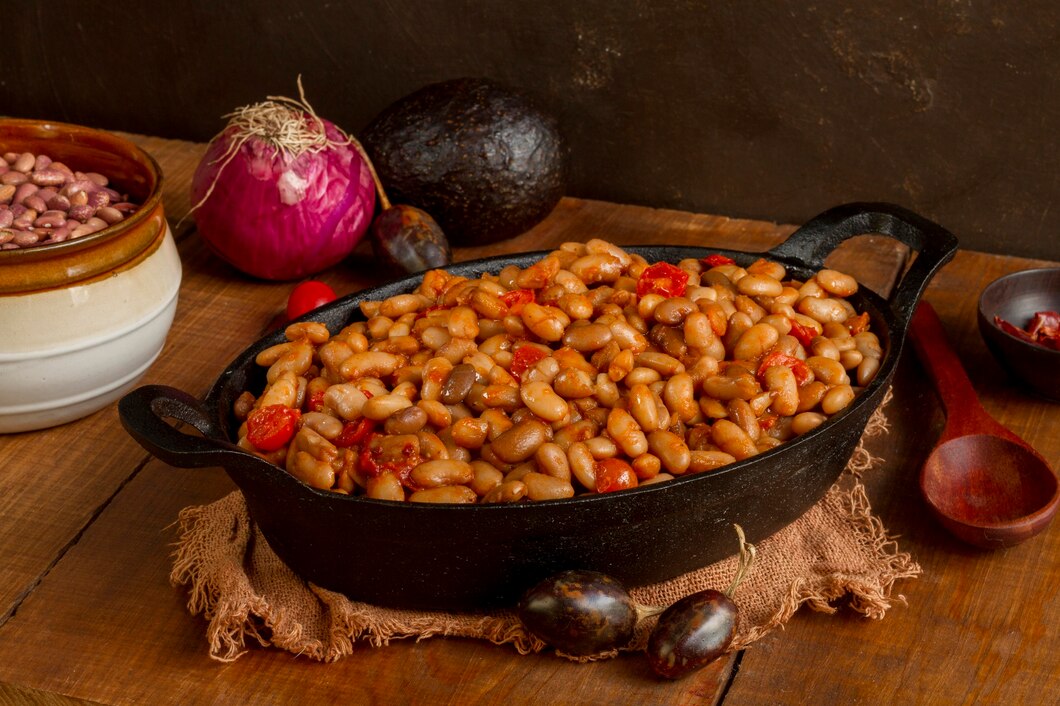Managing diabetes involves maintaining stable blood sugar levels through a balanced diet, which plays a crucial role in overall health. Choosing the right foods can help control blood sugar, manage weight, and reduce the risk of complications. Here are 20 foods that South Africans should include in their diet if they have diabetes.
1. Leafy Greens
Spinach, kale, and Swiss chard are low in calories and carbohydrates while being rich in vitamins, minerals, and fiber. They have a minimal impact on blood sugar levels and are packed with antioxidants that support overall health.
2. Whole Grains
Whole grains like brown rice, quinoa, oats, and whole-wheat bread have a lower glycemic index (GI) than refined grains. They are rich in fiber, which helps slow the absorption of glucose, preventing spikes in blood sugar.
3. Sweet Potatoes
Sweet potatoes are a nutritious alternative to regular potatoes, offering a lower GI. They’re high in fiber and vitamins, particularly vitamin A, and provide a steady source of energy without causing rapid blood sugar increases.
4. Beans and Lentils
Beans, lentils, and other legumes are excellent sources of plant-based protein, fiber, and complex carbohydrates. They help regulate blood sugar levels by slowing digestion and stabilizing glucose release.
5. Avocados
Avocados are rich in healthy fats, particularly monounsaturated fats, which can help improve insulin sensitivity and reduce inflammation. They’re also low in carbohydrates, making them a great addition to a diabetes-friendly diet.
6. Fatty Fish
Fish like salmon, mackerel, and sardines are high in omega-3 fatty acids, which are beneficial for heart health. Omega-3s can help reduce inflammation and lower the risk of cardiovascular disease, a common concern for people with diabetes.
7. Nuts and Seeds
Almonds, walnuts, chia seeds, and flaxseeds provide healthy fats, fiber, and protein. They help regulate blood sugar levels and keep you feeling full, making them an excellent snack option for managing diabetes.
8. Berries
Berries such as blueberries, strawberries, and raspberries are low in sugar and high in fiber, antioxidants, and vitamins. They have a lower GI compared to other fruits and are an excellent choice for a sweet, nutritious treat.
9. Greek Yogurt
Greek yogurt is lower in carbohydrates and higher in protein compared to regular yogurt. It can help regulate blood sugar levels and support digestive health, especially when consumed without added sugars.
10. Tomatoes
Tomatoes are low in calories and carbohydrates but high in vitamin C, potassium, and antioxidants like lycopene. They can help reduce the risk of heart disease and are an excellent addition to a diabetic meal plan.
11. Citrus Fruits
Oranges, grapefruits, and lemons are packed with fiber, vitamin C, and antioxidants. Although they contain natural sugars, their fiber content helps slow the absorption of glucose, making them a good fruit choice for people with diabetes.
12. Eggs
Eggs are a low-carb, high-protein food that helps keep you full and stabilize blood sugar levels. They’re also rich in nutrients like choline, which supports brain health, and are versatile in meal planning.
13. Cruciferous Vegetables
Broccoli, cauliflower, cabbage, and Brussels sprouts are nutrient-dense and low in calories and carbs. They’re high in fiber and contain compounds that may help regulate blood sugar and reduce inflammation.
14. Garlic
Garlic is known for its potential to improve insulin sensitivity and lower blood sugar levels. It also has heart-protective benefits, which are essential for managing diabetes-related complications.
15. Apple Cider Vinegar
Apple cider vinegar may help improve insulin sensitivity and lower blood sugar levels after meals. Consuming it before meals or incorporating it into salads can help regulate glucose levels.
16. Cinnamon
Cinnamon is a spice that may help lower blood sugar levels and improve insulin sensitivity. Adding a sprinkle of cinnamon to your meals or drinks can be a simple way to enhance your diabetes management.
17. Turmeric
Turmeric contains curcumin, a compound with anti-inflammatory and antioxidant properties. It may help improve insulin sensitivity and lower blood sugar levels. Including turmeric in your diet, especially with black pepper to enhance absorption, can be beneficial.
18. Chia Seeds
Chia seeds are high in fiber, omega-3 fatty acids, and protein. They help slow down digestion, leading to more stable blood sugar levels. Chia seeds can be added to smoothies, yogurt, or oatmeal for an easy nutrient boost.
19. Green Tea
Green tea is rich in antioxidants called catechins, which may help regulate blood sugar levels and improve insulin sensitivity. Drinking green tea regularly can be a healthy habit for people with diabetes.
20. Dark Chocolate
Dark chocolate with a high cocoa content (70% or more) can be enjoyed in moderation as a diabetes-friendly treat. It’s lower in sugar than milk chocolate and contains flavonoids that may help improve insulin sensitivity.
Managing diabetes effectively involves choosing foods that support stable blood sugar levels and overall health. Incorporating these 20 nutrient-dense foods into your diet can help you manage your diabetes and reduce the risk of complications. Always remember to consult with a healthcare professional or a dietitian for personalized advice, especially when making significant changes to your diet.








